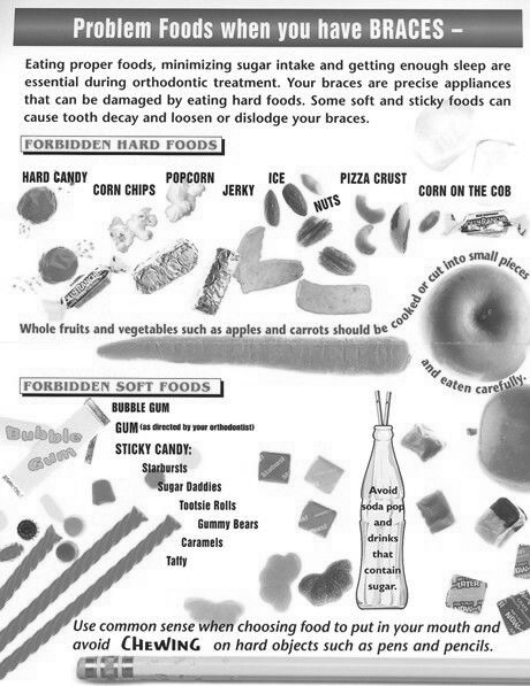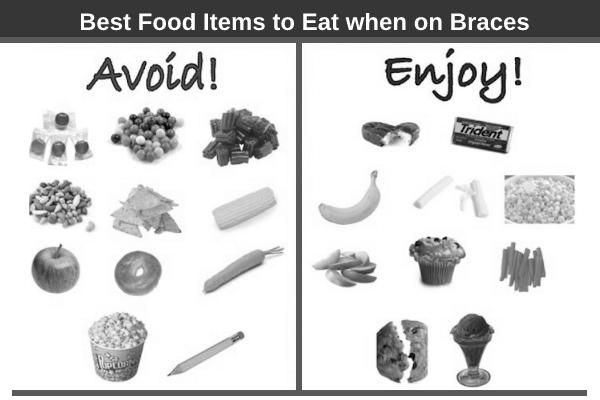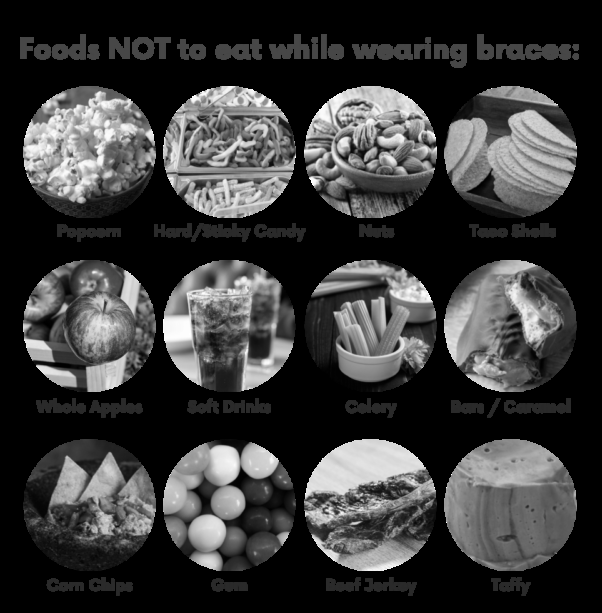Introduction
I know people who can eat fries with braces, but I don’t.
In fact, it’s not clear that this is even a question we should be addressing at all. We should be working towards removing the question “can i eat fries with braces?” from the world. But it is still a question we should be asking and answering.
Can I Eat Fries With Braces?
To put it mildly, this is a tale of two products. The first is a relatively well-known (and very useful) tool for composing and organizing ideas: the “brace”. The second is a product which is massively popular (with very wide adoption), but which does not seem to be doing well in the eyes of its users: the “fries”.
Readers are likely familiar with both of these products, but perhaps not so much with the third one, which a few people tried to rename “apple salad”: it doesn’t exist yet, but it’s being talked about by some people. How many people will use it? And how quickly will they do so?
The answer depends on different things:
• Will most people feel comfortable using braces?
• Do you have enough market share to be able to charge premium prices?
• If your product becomes more popular than your competitors, can you build brand strength by offering premium pricing?
…the answer depends on a number of factors (so don’t get too hung up on “3 wins”). At the end of the day, though, this question boils down to one thing: can I eat fries with braces? Whether you do or not depends on whether someone feels that they can eat fries with braces; and their willingness to pay for them. If that’s true for most people – and it may well be – then getting an app that lets them do so should be relatively easy. If it isn’t – and you have no success in getting near what Apple has done with Siri — then something else needs to change before you go looking for another market.

How Long Does It Take to Get Braces?
Braces are the stuff of legends. Once you’ve had them, you’ve probably thought about them forever. And now that you have braces, it’s time to think about getting them removed. The thing is, there’s a lot of confusion surrounding the topic, so we want to clear up a few things for you:
1) It doesn’t take that long to get braces off. Let me explain: While it may seem like only an hour or two in terms of surgery time and recovery, in reality it can take as little as 3-4 weeks for your teeth to heal and for them to be back in place. And depending on how well your jaw heals from the surgery and how long you spend with your mouth open, that could actually be longer than over 6 months. For example: if you had an operation for a bicuspid or trismus (both of which are also called “protrusion deformities and can cause problems such as splaying) and then spent months with your mouth open before recovering completely.
2) We recommend having braces taken off at least every 6 months — ideally more often — but if you have any lingering issues after several months, it would be best to wait until those issues resolve themselves (we don’t recommend going without braces yourself because this can affect your growth rate).
3) Braces aren’t just cosmetic — they also help improve your bite and make eating more comfortable.
4) If done correctly, braces will stay put even when they fall off (they require special “cushioning agents” which we offer free samples of).
5) When we say “remove braces completely,” we mean remove all the teeth; not just some of them. So if you have teeth left on both sides of your mouth but no teeth on the edges where they meet between them like here:
What Is Involved in Getting Braces?
The most common question you’ll get asked is “can I eat fries with braces?”. It might be a good question, but it’s not the right one. For starters, braces are not a food product that can be eaten with your fries. Nor is eating fries with braces something you should do. Fries and braces are two different things.
The term “braces” is used to describe an orthodontic appliance that fits over the teeth like brackets but isn’t attached to them. The “braces” in the first sentence above refers to the actual brace that fits over your teeth, which is called an orthodontic appliance (or simply an appliance). In most cases, people don’t want to eat their own dentures or wear them as facial jewelry; they want to replace them with orthodontic appliances that fit over their teeth and help them straighten their front teeth without affecting their bite or tongue position (and without causing any dental damage).
Braces are generally made from acrylic resin or plastic molding materials and are worn on top of the upper teeth with a bracket attached between them — this bracket has a set of pins in its locking mechanism so that it can move back and forth if you move your face too far forward or too far back or have a better fit for your teeth. The brace will also tighten around your jaw if you shift it forward or backward too much.

Braces are fixed in place (at least for now) and there is no way for you to make adjustments to the fitting mechanism once it’s installed; however, braces can be exchanged at any time if there is more dental wear than anticipated.
What Causes Gummy Smiles?
I don’t know why I even bothered to add this one.
The answer is straightforward.
People are gummy smiles, they just are. No matter what they say, the simple fact is that they can’t help it. It seems like a revelation that people display signs of joy in the presence of food but it turns out it’s a fairly common phenomenon:
• Neurologists have found that smiling activates the parts of the brain that process emotion as well as activating specific facial muscles for example orbicularis oculi (cheek muscles).
• It has also been linked to positive mood and even happiness.
But why does this work? Why do we smile? To answer this question we need to understand how the brain works, which forms an important part of our discussion on happiness. The ability to smile is rooted in our brain’s ability to recognize faces, not just certain expressions but aspects of people’s personalities and social interactions.
What Are the Benefits of Having Braces As an Adult?
There is a lot of confusion out there about braces, and I’m going to try to clear up some of it (this post is long enough already).
The answer I think is that they are not inherently bad — so long as your teeth aren’t affected. This one is controversial, but has some merit. As a possible side effect of braces, some people experience dental erosion (loss of tissue), which can be prevented with dental hygiene. That’s a small but still significant risk and the science behind it is pretty good.

But there are also some very real benefits from having braces:
• They give you an extra year to get used to eating food in a different way — which means you will get better at it and make fewer mistakes
• They give you the chance to do things when you might not have been able to do them before: eat dinner on a Friday night because your family doesn’t eat dinner on Fridays, go on vacation because you can’t go anywhere without your family
• They help set you up for future growth (they often make sense for people who are very young)
All this being said, there are many reasons why braces may or may not be useful in your life. It depends on your priorities, budget and individual circumstances. If you really want to have orthodontic treatment done, braces could be useful. If you want to avoid them or move forward with therapy after having them, then maybe not so much. The decision about whether or not braces should play a part in your life should be yours alone.
How
This is a simple, extremely effective (and very popular) way to communicate your value proposition and show that you are not just a “cool guy” who is going to sell you an awesome product. It’s also a very easy way to get your name in front of people who might otherwise be too busy to even notice it. The downside is that it can be hard to pull off, and also that if you don’t succeed with this one, many others will copy your idea.
While some people use this method more as a marketing tool than anything else, I suggest you do it because you care about people. If they don’t like what you have to say about why they should buy your product, the odds are high that the reason won’t matter. So by showing them what the benefits are for them (and then talking about how awesome it is), you are helping them make their decision easier and more likely to stick with you rather than some random stranger who has no vested interest in your success (or in theirs).
This doesn’t happen often enough for us to worry about it being something we “need” in order to succeed — but we do notice it when we see other companies doing it well — mainly because there doesn’t seem to be anything else out there in that space doing what they do so well.

